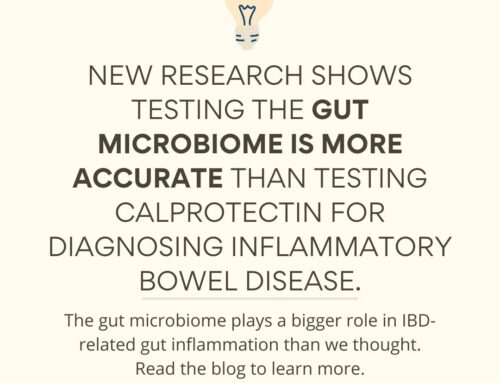Not feeling so great after starting a digestive health protocol? Whether you’re on potent antibiotics, herbal antimicrobials, or pathogen-targeting antibodies like IgY Max, it’s pretty common to have a not-so-smooth first few days of treatment.
You might be experiencing die-off symptoms. But – believe it or not – that’s not necessarily a bad thing.
Back up – what is die-off, and what does it have to do with beating dysbiosis? Quick Recap: What is Dysbiosis?
What Happens When Harmful Microbes In Your Gut Die?
When microbes in the gut die, they release harmful toxins and proteins. Think of it as their last hurrah – one last bout of gut damage on their way out.
The particles the dying microbiota release, endotoxins, make their way into your bloodstream, and travel throughout the body. Their presence triggers a transient inflammatory immune response called the Herxheimer reaction, which some call “die-off.”
Die-Off Symptoms
Die-off may lead to a variety of inflammation-induced symptoms such as:
- Mild nausea
- Mental health issues or brain fog
- Headaches
- Fever (sometimes)
- Chills
- Muscle and joint aches
- Worsened digestive symptoms
- General fatigue
The Herxheimer reaction should be temporary – these symptoms should only last a few days. Your body will likely be better able to process endotoxin load as treatment progresses.
Die-Off: Good or Bad?
If you’ve recently started treatment and are experiencing some of these symptoms, you’re probably facing a die-off reaction.
Even though die-off symptoms are no fun, don’t get too frustrated. Though counter-intuitive, experiencing die-off symptoms for a few days is a great sign.
That’s because the symptoms indicate that the harmful bacteria in your gut are dying! AKA, your treatment is working.
Okay, we get it – telling you to be happy about your headaches isn’t all that helpful. Read on to find out what you can do to manage die-off symptoms.
What to Do About Die-Off
There are several strategies for managing die-off symptoms. First and foremost, try lowering your treatment dose.
For example, if you take 4 grams of IgY Max per day, try taking 2 grams of IgY Max per day until your symptoms calm down. Once you feel better, gradually work your way back up to 4 grams. This reduction will allow your body to adjust to the level of endotoxins in the bloodstream. If you’re using a prescription medication, make sure to clear this with your doctor first.
Second, hydrate like crazy.
There’s a good reason doctors tell you to drink lots of fluids when you’re sick. Staying hydrated helps your kidneys and liver flush out toxins through urine and stool, which may reduce your symptoms. To increase hydration, drink lots of water and consume lots of carbohydrates, salt, and potassium.
Next up: consume a high-fiber and plant-rich diet.
Anti-inflammatory compounds in colorful plants, called polyphenols, may mitigate the Herxheimer reaction. Consuming plenty of fiber will also help to expel the
endotoxin-releasing bacteria by increasing your stool frequency.
Some people like to use saunas to help with the detoxification process. Increasing caffeine intake may also help to release endotoxin-producing microbes by ramping up stool frequency.
If all else fails, remember that die-off will only last a few days. Lower your dose, reduce inflammation, get some sleep, and you’ll be feeling better in no time.
The Take-away: Die-Off Means Your Bugs are Dying
Die-off symptoms indicate that harmful microbes inhabiting your gut are dying. They release endotoxins as they die. The toxins trigger an inflammatory immune response, making you feel pretty crappy.
Remember that die-off is, in a way, an encouraging sign: your treatment plan is doing its job.
The symptoms should only last for a few days. You can combat them through various strategies mentioned above, such as lowering your treatment dose, consuming anti-inflammatory foods, and hydrating with carbohydrates, salt, and potassium.
Congratulations on making strides toward a balanced microbiome. Tag us on Instagram at @igynutrition to let us know how your digestive health journey is progressing!




